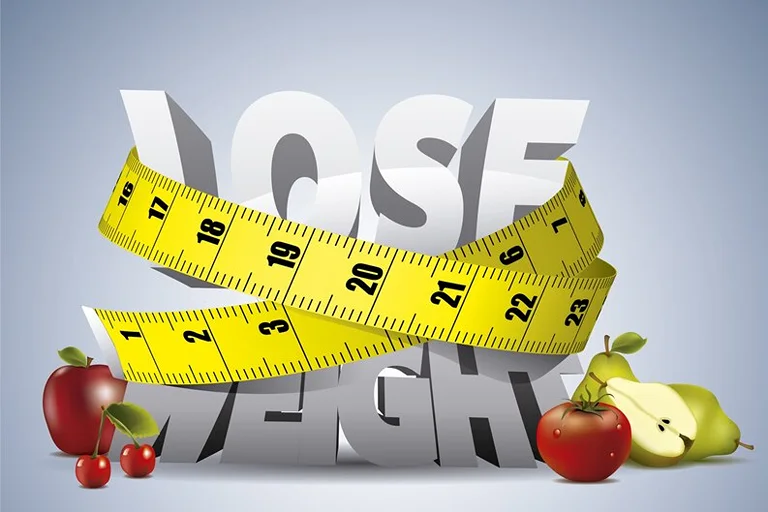Easiest Way to Beat Weight Loss Plateaus and Keep Losing
You have been following a healthy diet and exercise plan for a while, and you have seen some positive results. You have lost some weight, improved your fitness level, and felt better overall. But then, something frustrating happens. Your weight stops going down, no matter how hard you try. You have hit a weight loss plateau.
A weight loss plateau is a common phenomenon that happens when your body adapts to your current calorie intake and activity level. It can be discouraging and demotivating. But it does not mean that you have failed or that you cannot lose more weight. In this article, we will explain what causes a weight loss plateau, how to prevent it, and how to overcome it.

What Causes a Weight Loss Plateau?
There are several factors that can contribute to a weight loss plateau. Some of the most common ones are:
- Lower calorie requirement: As you lose weight, your body becomes smaller and lighter, which means that it needs fewer calories to maintain its functions and activities. This reduces the calorie deficit that you have created by eating less and moving more and slows down your weight loss rate. According to one study, for every pound (0.45 kg) of weight you lose, you burn 6.8 fewer calories, on average.
- Loss of muscle mass: When you lose weight, you lose some muscle mass along with fat. Muscle is a metabolically active tissue that helps you burn calories even at rest. Therefore, losing muscle mass lowers your metabolic rate, which is the number of calories you burn in a day. Resistance training can help you preserve your muscle mass and keep your metabolism high.
- Relaxing of dietary habits: Sometimes, as you see some progress, you may become less strict with your diet and allow yourself some extra treats or larger portions. This can increase your calorie intake and reduce your calorie deficit
- Changes in physical activity: As you become more fit, your body becomes more efficient at performing the same exercises, which means that you burn fewer calories than before. To continue challenging your body and burning more calories, you need to increase the intensity, duration, or frequency of your workouts. You can also try different types of exercises. Such as high-intensity interval training (HIIT), which has been shown to boost your metabolism and fat burning.

How to Prevent a Weight Loss Plateau?
The best way to prevent a weight loss plateau is to avoid losing weight too quickly. Rapid weight loss can cause more muscle loss and metabolic slowdown than gradual weight loss. It can also increase the risk of nutritional deficiencies, gallstones, and other health problems.
To achieve this, you need to create a moderate calorie deficit of about 500 to 1000 calories per day, depending on your weight, age, gender, and activity level. You can use a calorie calculator to estimate how many calories you need to eat and burn in a day to reach your goal weight. You can also use a calorie tracker app or website to monitor your calorie intake and expenditure.
Another way to prevent a weight loss plateau is to vary your calorie intake throughout the week. This can help you avoid getting used to a certain amount of calories and keep your metabolism guessing. For example, you can eat more calories on some days and less on others, as long as you maintain an average calorie deficit over time.
How to Overcome a Weight Loss Plateau?
If you have already hit a weight loss plateau, don’t panic or give up. There are some simple strategies that can help you break through it and resume your weight loss journey. Here are some tips to try:
- Cut back on carbs: Carbs are the main source of energy for your body, but they can also cause water retention and bloating. Reducing your carb intake can help you lose some water weight and make you feel lighter. It can also lower your insulin levels and increase your fat burning. Aim to consume no more than 50 grams of carbs per day, and focus on eating high-quality carbs from vegetables, fruits, nuts, seeds, and whole grains.
- Increase protein and fiber intake: Protein and fiber are two nutrients that can help you feel full and satisfied for longer. Protein can also help you preserve your muscle mass and boost your metabolism. Fiber can also improve your digestive health and lower your cholesterol levels. Aim to consume at least 0.8 grams of protein and 25 grams of fiber per kilogram of body weight per day, and choose lean sources of protein and high-fiber foods.
- Drink more water: Water is essential for your health and weight loss. It helps you stay hydrated, flush out toxins, regulate your body temperature, and transport nutrients and oxygen. It also helps you control your appetite and calorie intake, as sometimes you may mistake thirst for hunger. Drinking water before meals can also help you eat less and lose more weight. One study found that drinking 500 ml of water 30 minutes before meals increased weight loss by 44% over 12 weeks. Aim to drink at least 2 liters of water per day, and more if you exercise or sweat a lot.
More About How to Break a Weight Loss Plateau?
- Get enough sleep: Sleep is another key factor for your health and weight loss. It helps you recover from physical and mental stress, regulate your hormones, and maintain your immune system. Lack of sleep can impair your metabolism, increase your hunger and cravings, and lower your energy and motivation. Research has shown that sleeping less than 7 hours per night can reduce your weight loss and increase your risk of obesity and diabetes. Aim to get at least 7 to 9 hours of quality sleep per night, and avoid caffeine, alcohol, and electronics before bed.
- Manage your stress: Stress can also affect your weight loss and health. It can trigger the release of cortisol, a hormone that increases your appetite and promotes fat storage, especially around your belly. It can also make you more likely to binge on unhealthy foods, skip your workouts, and neglect your self-care. Research has shown that chronic stress can contribute to weight gain and obesity. To manage your stress, try to identify and avoid or cope with the sources of stress in your life. You can also practice some relaxation techniques, such as meditation, yoga, breathing exercises, or massage.

Signs of Plateau During Weight Loss
I can help you with that. A weight loss plateau is when your weight stops changing despite your continued efforts to lose weight. It’s a common occurrence and can be frustrating. Here are some signs that you may have hit a weight loss plateau:
- If You’re Tired: If you’re feeling exhausted while trying to lose weight, that could be a sign that you’re getting less and less out of your weight-loss workouts.
- You’re hungry: If you’re constantly hungry, it could be a sign that your body is holding onto calories and slowing down your metabolism.
- You’re irritable: If you’re feeling more irritable than usual, it could be due to the stress of trying to lose weight.
- You’ve loosened up on healthy eating: If you’ve started to eat more unhealthy foods or larger portions, it could be a sign that you’re not as committed to your weight loss goals as you once were.
- You’re too focused on cardio: If you’re only doing cardio exercises, it could be time to switch things up and add some strength training to your routine.
- You rarely move outside of the gym: If you’re not moving around much outside of your workouts, it could be time to add more physical activity to your daily routine.
If you’re experiencing any of these signs, it might be time to reassess your weight loss plan and make some changes. You could try increasing the intensity of your workouts, changing up your exercise routine, or adjusting your diet. Remember, weight loss is a journey, and it’s normal to hit a plateau. Don’t give up, and keep working towards your goals!
Final Words
A weight loss plateau is a normal and expected part of the weight loss process. It does not mean that you have done something wrong or that you cannot lose more weight. It simply means that you need to make some adjustments to your diet and exercise plan to keep challenging your body and burning more calories. By following the tips in this article, you can break through a weight loss plateau and achieve your weight loss goals. Remember to be patient, consistent, and positive, and you will succeed.



